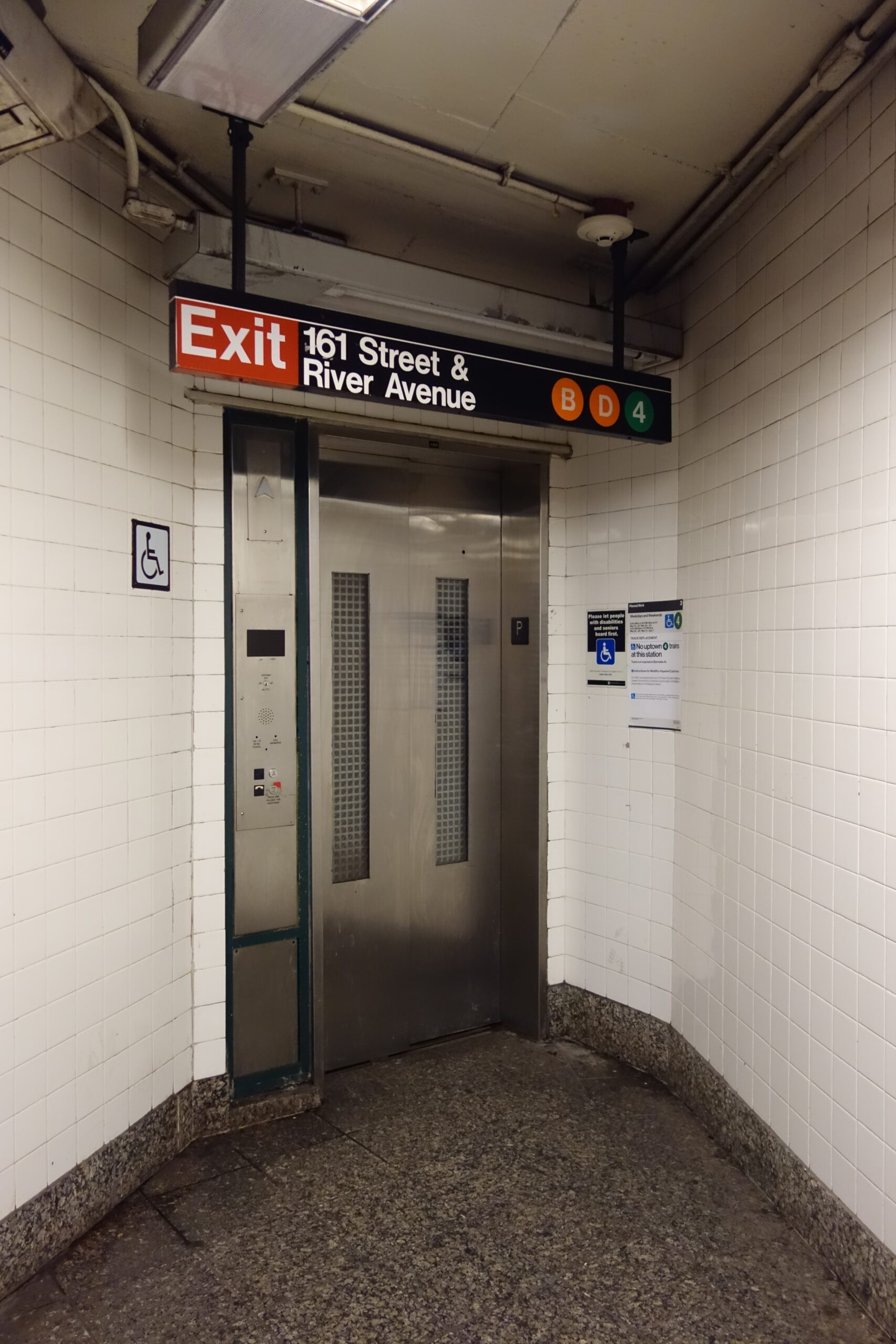When Elspeth Slayter, a former social worker at Bronx Defenders in Mott Haven, landed a job teaching social work and disability practice elsewhere, her new supervisor was not accommodating. She refused to let Slayter work from home.
It didn’t matter that Slayter, who is disabled, is legally entitled to that kind of work accommodation. It also didn’t matter that her classes were online, or that she could prove she was exceeding the hours in her contract.
“The arguments given to me were it was harmful to the culture of the work environment, or it was a problem for camaraderie, or I should be there because other people are here, so you should show up to be fair,” Slayter recalls.
Yet Rosalia Watkins, a disabled education trainer and resident council member at Banana Kelly Community Improvement Association, says she never had problems when she occasionally needed to work from home due to an out-of-service building elevator or a lack of transit wheelchair access.
Unlike Slayter’s online classes and administrative tasks, Watkins’s work pre-pandemic required her to give training at schools, hospitals, and other sites in person, as she specialized in hands-on training and in-person learning activities like completing puzzles and role playing.
Yet when she needed to stay home for needs like care workers’ visits, Watkins says her organization was very aware of disability issues. She could just make a call without putting in a formal request.
“Now if somebody from my job said, ‘we need documentation for this,’ then I’d have no problem getting documentation from any one of my 13 doctors,” said Watkins, laughing.
Invisible Disabilities More Susceptible to Arbitrary Responses
But for people with less visible health disabilities, the situation is often arbitrary. Employees with more stigmatized conditions often make the choice not to “come out” to survive in the workplace. But not disclosing their specific disability can mean leaving it up to the employer’s discretion whether they can get “reasonable accommodations” under the Americans with Disabilities Act .
Even when they disclose their health condition, it’s a long shot for supervisors to see such adjustments as reasonable. In 70% of lawsuits where disabled U.S. workers fought for the right to work from home under the disabilities act between 2017 and 2019, they lost.
Yet millions of abled workers got these flexible hours and remote work situations virtually overnight as a coronavirus precaution. It’s this disparity that led disabled people to storm social media expressing outrage that what was considered impossible for disabled people was suddenly possible for the abled.
Those with invisible disabilities face even greater challenges in receiving accommodations.
“With people with chronic illness and emotional disabilities–this is where we hear things like ‘you can’t work from home, because you need to be a team player,’ ” said Slayter. “Or, ‘because of your absence, there’s not going to be the same sense of community. I think that’s kind of bullshit, frankly.”
Disabilities Experts Express Hope for Post-Pandemic Shifts in Work Accommodations
The insta-remote work situation for so many has also led disabled people to wonder whether these conditions will last after the pandemic is over. It may depend on whether employers can see the benefits beyond physical distancing as a COVID-19 measure.
Slayter cites increased productivity and creativity as two benefits to her working from home, while acknowledging the situation might be different for workers who are also caretakers.
Working remotely can also eliminate the often overwhelming environmental stimuli from commuting and the workplace. Such hyperstimulation can hamper thinking and disproportionately impact people with mental and emotional disorders, chronic fatigue issues, and attention deficit disorder, recent studies show.
Mixed-ability team activities and incentive systems are some of the best ways to combat false beliefs about disabilities, according to Mary McConnoll, an epidemiologist and physical rehabilitation professor at Queen’s University. While she says incentives shouldn’t be necessary, the point is to create opportunities for people with disabilities to be seen as assets.
The key is for employers to realize that assumptions about disabled workers–that they require extra money, time, or human resources to accommodate–are false, according to feminist disability researcher Deborah Stienstra.
Disabled employees tend to stay, tend to not take any more sick time than their abled counterparts, and often much less, as their jobs are made to suit them, said Siniestra.
The Doubts Behind Potential Shifts in Disability Accommodations
The biggest worry is that, post-pandemic, employers might forego altering the workplace and instead direct people who need accommodations to just stay home and work from home, according to McConnoll. People with or without disabilities have diverse needs, something a one-size-fits-all approach to accommodations could neglect or harm.
Not addressing this diversity can mean confining disabled people to particular tasks that don’t offer them the same opportunities for growth as other non-disabled employees, according to McConnoll.
More opportunities to access a resource or work condition can also inadvertently lead to less opportunities for those who need it, according to Watkins. It can also lead to work-at-home conditions to be seen as a luxury versus a need.
“It’s possible for people to say, ‘okay, you’re working from home. So that way you don’t need so many hours,’ or lead to a kind of trade-off,” said Watkins.

